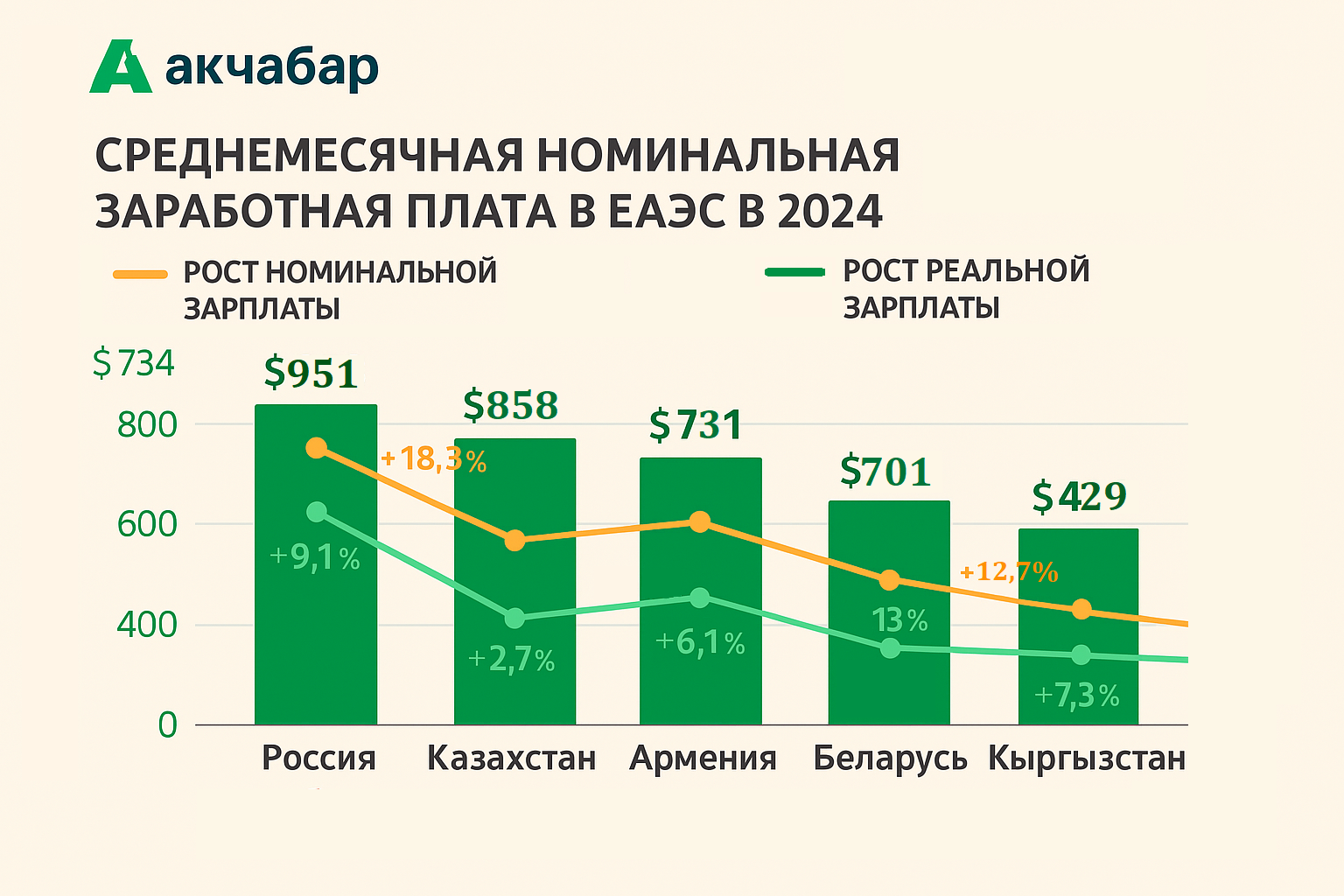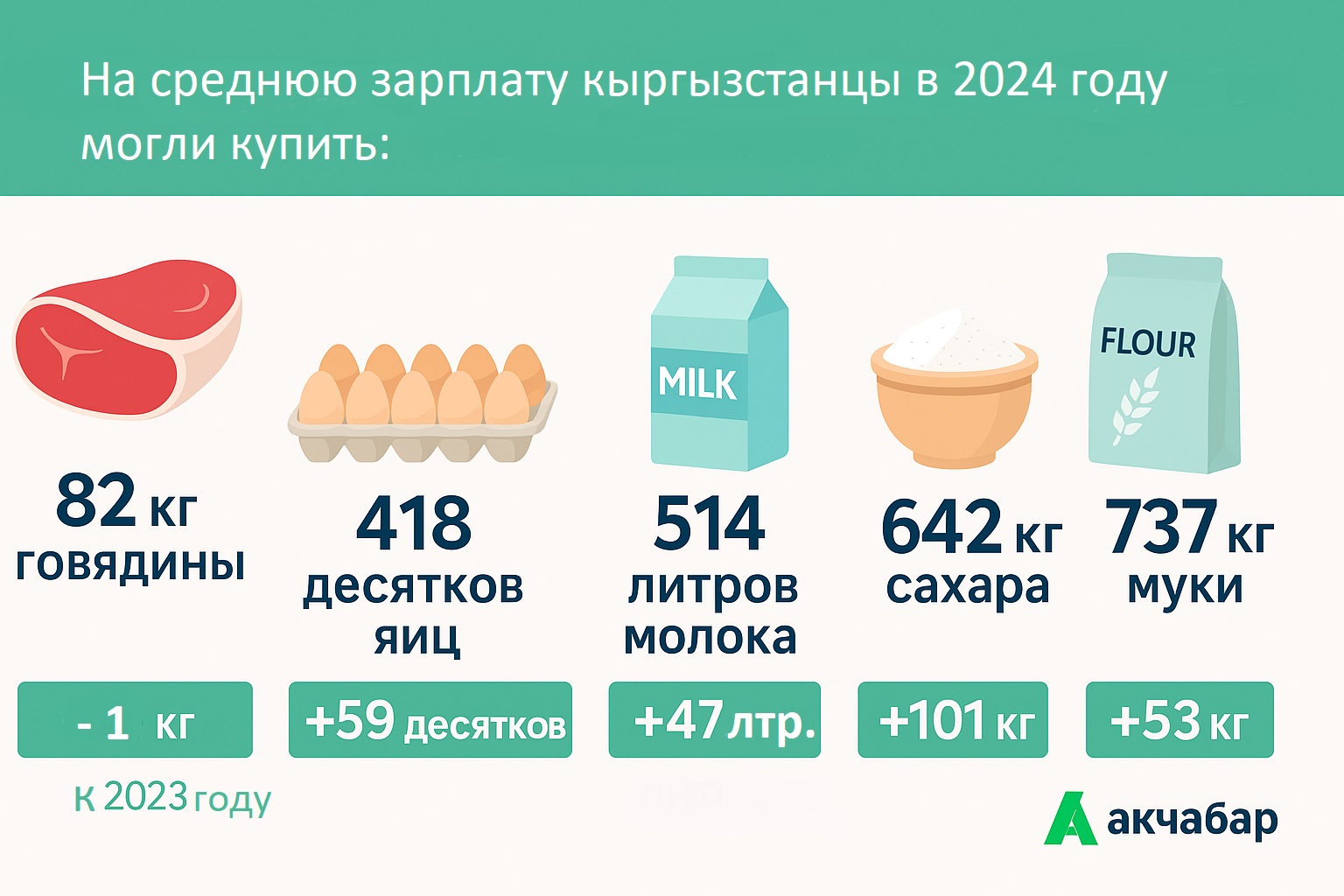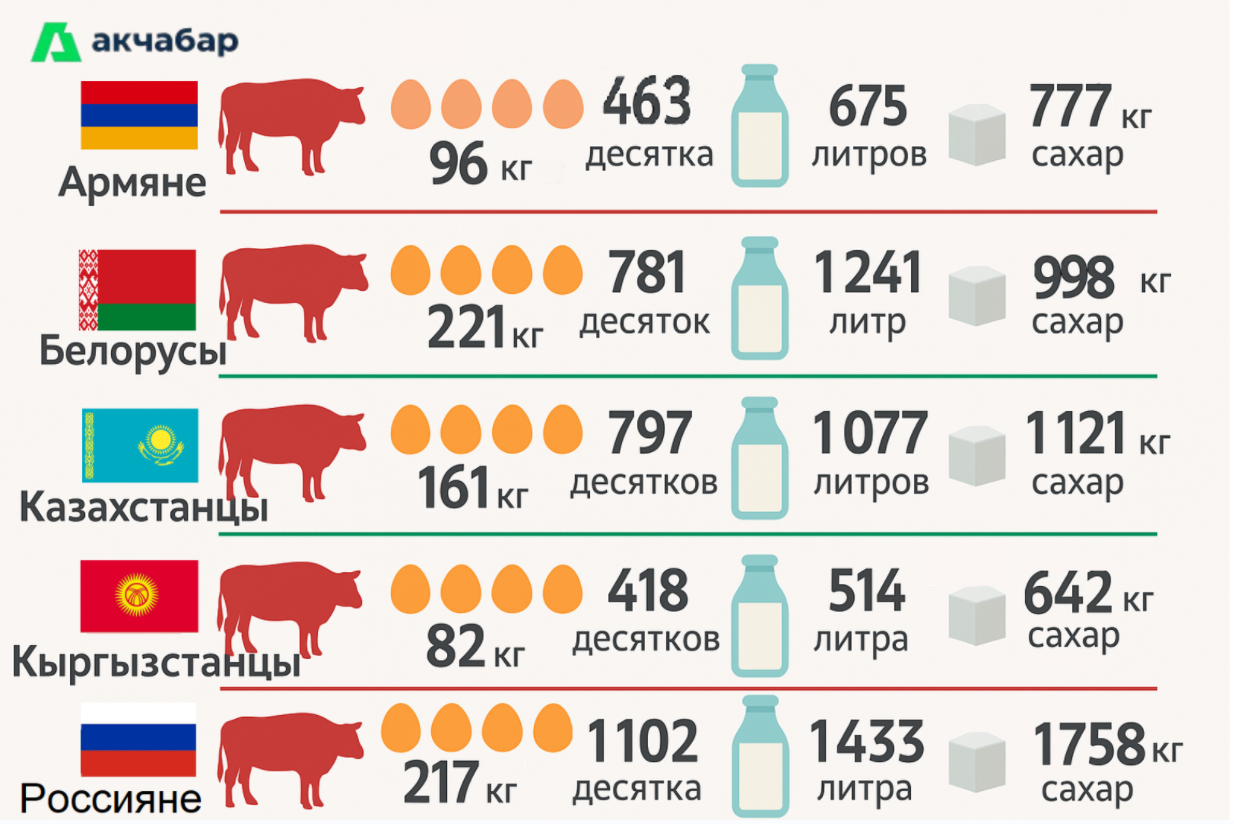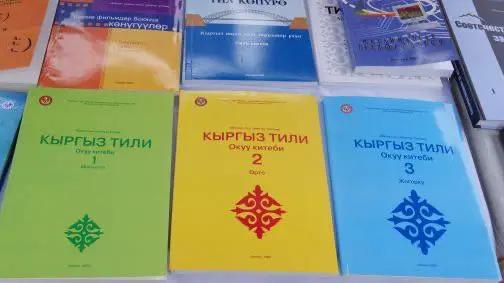Published
04/10/2025, 19:00The countries of the Eurasian Economic Union are reporting record income growth rates, but how real is the purchasing power of their citizens? Kyrgyzstan shows an interesting trend — while wages are increasing, has the quality of life actually improved?
According to the latest data from the Eurasian Economic Commission, the average monthly nominal salary across the EAEU in 2024 was 734 USD. However, there is a significant gap between member states: Russia leads with the highest average salary at 951 USD, while Kyrgyzstan has the lowest at 429 USD. Kazakhstan ranks second with 858 USD, followed by Armenia (731 USD) and Belarus (701 USD).
In terms of nominal wage growth, Belarus (+19.4%) and Russia (+18.3%) lead the way. Kyrgyzstan showed strong but more modest growth — +12.7% over the year.
Its real value (adjusted for inflation) increased the most in Belarus and Russia — by 13% and 9.1%, respectively. In Kyrgyzstan, it rose by 7.3%, which is lower than in Russia and Belarus but higher than in Armenia by 6.1% and Kazakhstan — only 2.7%.

In Armenia, wages increased the most in the financial and insurance sector — by 18.2%, in Belarus, the highest growth was in the sector of other service activities — 18%, in Kazakhstan, the information and communication sector saw the largest rise — 19.4%, in Kyrgyzstan, wages grew most significantly in the wholesale and retail trade sector — by 26%, while in Russia, the sector of other service activities led the growth — with an increase of 17.1%.
The highest salaries across all EAEU countries are paid in the financial and insurance sector, ranging from 871 USD in Kyrgyzstan to 2,305 USD in Armenia; in the information and communication sector — from 776 USD in Kyrgyzstan to 2,195 USD in Armenia; and in the mining industry — from 737 USD in Kyrgyzstan to 1,683 USD in Russia.
It is important to note that the average salary levels in the capitals differ significantly from the national averages. For example, the average salary in Yerevan is 14.6% higher than the national average, in Minsk — 34.7% higher, in Astana — 32.2% higher, in Bishkek — 23.1% higher, and the largest gap is observed in Moscow — 84.4% higher than the national average.
However, a high salary does not always equate to a high standard of living. In countries with lower average wages, the purchasing power can often be higher than expected. To truly understand this, it is important to look not at the size of the salary itself, but at how many goods and products can actually be purchased with it.
Let's compare a basket of five basic products: beef, chicken eggs, milk, sugar and premium wheat flour.

Kyrgyzstan does not have the highest results in the EAEU. For example, a Russian citizen can buy 2.6 times more milk, nearly 3 times more sugar, and 3.2 times more flour with their salary.
However, despite the fact that the average salary in Armenia is 4.28% higher than in Belarus, Belarusians can afford more of all the aforementioned goods. Even Kazakhs, who earn on average 22.4% more than Belarusians, can afford 60 kilograms less beef, 164 liters less milk and 607 kilograms less flour with their salaries.

Interestingly, despite the significant wage gap between Armenia and Kyrgyzstan (Armenians earn 1.7 times more), Kyrgyz citizens can afford less of certain items, specifically 14 kilograms less beef and 45 dozen fewer chicken eggs. However, for some products not included in our basket, such as live fish (19 kilograms), butter (1.6 times), buckwheat (1.64 times), and bread (1.3 times), Kyrgyz citizens can afford to purchase more with their salaries than Armenians.
In 2024, the purchasing power of Kyrgyz citizens has increased compared to 2023:
Even despite a slight decrease in the availability of beef by 1 kg, the overall situation is improving. Furthermore, compared to 2022, the growth is even more impressive: 15 kg more beef, 99 dozen more eggs, 116 liters more milk, 245 kg more sugar, and 169 kg more flour than two years ago.
Thus, we can speak not only of rising wages but also of an improvement in purchasing power. Although the gap with our EAEU neighbors remains, the main trend is clear: the quality of life, according to official statistics, is improving.



